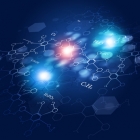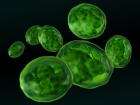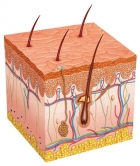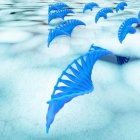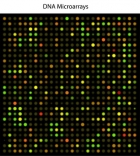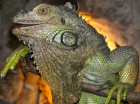Press monitoring
Lab-grown liver organoid to speed up turtle research and make useful traits easier to harness
11.3.2024 | Press monitoring
The three-dimensional clusters grown from adult stem cells are called organoids and are designed to assist in research. In a paper published in Communications Biology, Nicole Valenzuela, professor of ecology, evolution, and organismal biology at Iowa State, and her colleagues describe their creation of organoids that mimic a liver from three...
USDA approves stunning bioluminescent firefly petunias for sale
8.3.2024 | Press monitoring
The USDA has approved Light Bio's "Firefly Petunias," and the company is taking US$29 pre-orders on these remarkable gene-edited houseplants. They glow in the dark, making them a captivating home decor addition for science buffs. They're indistinguishable from regular petunias during the day, but thanks to some genes spliced in from naturally...
Marine algae implants could boost crop yields
6.3.2024 | Press monitoring
Scientists have discovered the gene that enables marine algae to make a unique type of chlorophyll. They successfully implanted this gene in a land plant, paving the way for better crop yields on less land. Finding the gene solves a long-standing mystery among scientists about the molecular pathways that allow the algae to manufacture this...
Astonishing scar-free surgery prints living skin right into wounds
4.3.2024 | Press monitoring
The skin of the head and face is vital to protecting the structures underlying it. It’s also integral to our identity. Full-thickness skin damage caused by traumatic injury to or extensive surgery on the face or head – to remove a cancerous tumor, say – can negatively impact a person’s confidence and self-esteem. Despite advances in plastic and...
Novel RNA- or DNA-based substances can protect plants from viruses, scientists show
1.3.2024 | Press monitoring
Individually tailored RNA or DNA-based molecules are able to reliably fight off viral infections in plants, according to a new study by the Martin Luther University Halle-Wittenberg (MLU). The researchers were able to fend off a common virus using the new active substances in up to 90% of cases. They also developed a method for finding substances...
Nanotweezers manipulate bacteriophages with minimal optical power, a breakthrough for phage therapy
28.2.2024 | Press monitoring
Scientists at EPFL have developed a game-changing technique that uses light to manipulate and identify individual bacteriophages without the need for chemical labels or bioreceptors, potentially accelerating and revolutionizing phage-based therapies that can treat antibiotic-resistant bacterial infections. Phage therapy, the use of bacteriophages...
Radioactive fruit sugar lights up cancer and inflammation
26.2.2024 | Press monitoring
A radioactive form of fructose, a natural sugar found in fruit, given to mice lit up areas of cancer and inflammation on a diagnostic medical scan. The researchers say the approach makes diseases easier to spot than current techniques and opens the door to new avenues of early detection. A positron emission tomography or PET scan often relies on...
Mosquito-spreading drones could slash the spread of disease
23.2.2024 | Press monitoring
First of all, how could adding mosquitos to the environment reduce the spread of malaria and other mosquito-borne diseases? Well, it all comes down to a process known as "sterile insect technique" (SIT). In a nutshell, SIT involves rendering captive male mosquitos sterile, then releasing them into areas where wild female mosquitos are present....
Synthetic antibody could be key to a universal antivenom
21.2.2024 | Press monitoring
Scientists have made a synthetic antibody that can prevent paralysis and death inflicted by the venom of elapids, a large family of mostly deadly snakes found around the world. The discovery has us slithering ever closer to developing a single, universal antivenom that could protect us against all venomous snakes. Australia, Asia, and Africa, in...
Grow a pair: Lab-grown testicles tackle infertility treatment
19.2.2024 | Press monitoring
Researchers have created lab-grown testicle organoids that closely resemble the real thing. The breakthrough provides a promising model for research that may advance our understanding of the organs' development and translate into therapeutic applications for male infertility. Organoids, lab-grown 3D mini-organs derived predominantly from stem...
